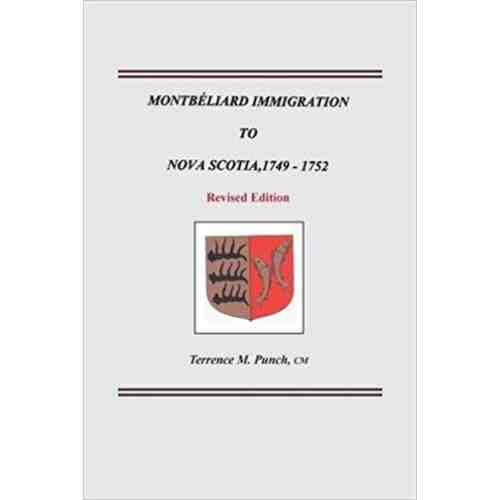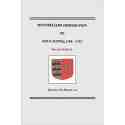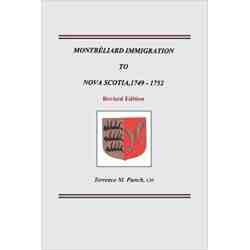Between 1789 and 1815 dozens of sovereignties in Europe were extinguished. Small states of the Holy Roman Empire were incorporated within larger ones whose dukes were sometimes elevated to kings, as in Bavaria and Württemberg. Montbéliard, the one French-speaking Lutheran state in Europe, was swallowed up by France in 1793.
Montbéliard was peopled by a mixture of families settled there from medieval times–Württembergers brought there in the service of its dukes, Swiss, refugee Huguenots from France, and Mennonites. These groups came to have a shared identity as Montbéliardais and spoke of the small principality as le pays, the land.
During the eighteenth century schemes were put in motion by the British government to attract reliable settlers to their North American possessions. One project at mid-century engaged John Dick, a Scottish merchant at Rotterdam, to recruit and ship foreign Protestants to Nova Scotia. The first British attempt at settlement–Halifax (1749)–was failing to retain its English settlers who were removing to longer-settled colonies. Dick’s task was to find new settlers for Nova Scotia. Between 1750 and 1752 he shipped about 2,500 people to the colony. One-sixth of them were drawn from Montbéliard.
Now, 260 years later, thousands of Nova Scotians can trace themselves back to Montbéliardais ancestors. At the time and since, Montbéliardais and their descendants have formed part of the perennial stream of Nova Scotians immigrating to the United States. Early cases were the movement of the Jacquin and Malbon families in Maine, Calame and Duvoisin to Pennsylvania, and Coulon and Vuilamet to New York. Later, members of the (Jean)perrin family settled in Ohio.
In this book we follow these people from before they immigrated to North America to their establishment on this side of the Atlantic a generation or two afterwards. Here you will find a bigamy, a murder, and a liaison with a spy during the American War of Independence tucked away among the hundreds of people who led quiet lives and did not attract attention.
Revised, corrected, and updated, this edition is based on the recent release of Montbéliard records online, allowing the author to alter some genealogies or carry them back another generation. In addition, this revised edition includes a three-page listing of “Sources of Research,” the first collection of this information in English.



